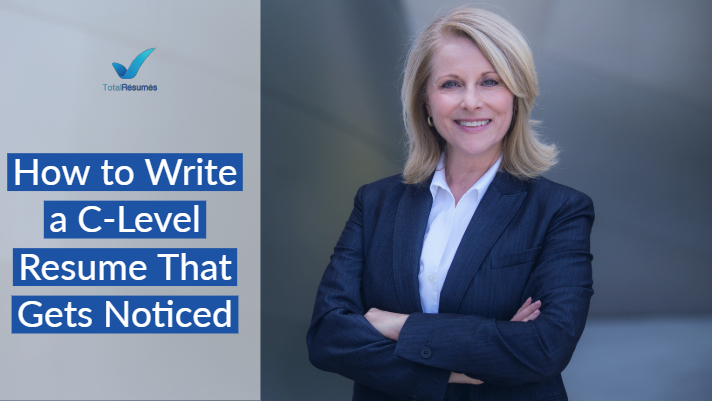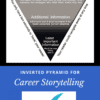
There are some who argue in this digital age, a strong online presence and network for C-level executives can often be enough to get you the job you desire, even over better-qualified candidates. While networking is just as important as ever with more than 80% being landed through networks, a solid executive resume is still vital to get you in the door. At some point during the hiring process, you’re still going to need a paper (or electronic) resume.
If you’re an executive and your resume needs a serious lift, here are some key elements you need to keep in mind to give it a fresh look:
The Intro Is Your Most Precious Real Estate
Key decision makers spare less than 10 seconds for a resume to grab their attention. The top one-third of the first page of your resume is prime real estate to make your personal brand and value proposition shine. Consider the content for this section as if it’s your personal business card. What are you known for? What is your value proposition?
Additionally, recruiters may search for resumes via a database using keywords. So much like any webpage, ensure that the key requirements and skills of the position are easily spotted in this section. To learn more about what Applicant Tracking Software (ATS) looks for, read our earlier post here.
Some suggestions to include in the intro are:
- A personal branding statement and tagline with relevant keywords.
- Three to four value-driven statements.
- A graphics box with areas of expertise/value proposition.
- Certificates and degrees that relate to the position.
- Three to four accomplishments emphasising your core value as it relates to the roles you’re applying for.
- A quote from a client, previous employer or recent performance review.
Include Powerful Content and Career Success Stories
Your resume will not reach out to hiring managers and recruiters if it is generic and tries to cover too many bases. Target the value offering as it relates to the job opening. One of the best ways to do this is by explaining how you made things happen when facing a challenge, what actions you took using your skill set and the results you delivered.
Your resume should showcase your accomplishments, not your responsibilities. As an executive, you are bound to have vast experience in planning and achieving operational goals, managing high-performance local or offshore teams, and spearheading significant change within your organisation. Your resume needs to show this experience quickly and powerfully. Done well, this will help to position you above your competition.
Put it all together by showing the numbers. We all know that numbers talk, and your resume is one place where this is true. Quantifying your contributions is an excellent way to sell your abilities. Your target audience will have a clear picture of what you will be able to do for them. Bear in mind, that your success story must be clear, concise and quickly deliver the point. SHOWING and not just TELLING is key. For example:
- Propelled revenue by 22% to $8M, added $2M to the bottom-line, increased profits by 33% to $2M or efficiencies by 60%—how this was achieved.
- Saved $400K in supply chain cost reductions—how this was achieved.
- Reversed $4M turnover with -$2.5M losses to deliver $50M turnover with $6M profits—how this was achieved.
This means LESS: ❌ Passive voice ❌ Laundry list of duties ❌ “Responsible for” statements
And MORE: ✔ Action words ✔ Quantitative measurements ✔ Compelling results and achievements
Also, it is important to speak as much as possible from your recent experience, preferably over the past 10-15 years.
What to Avoid When You Write Your C-Level Resume
While deficient resumes follow a format or template, there are many features of these resumes that must be dropped when you are seeking an executive-level position.
Some of these include:
- Objective
Organisations want to know what you can do for them and not what your own professional goals are. Consider including an executive summary of your value or career achievements instead.
- Personal information
Exclude writing about your interests, GPA, hobbies, age, photo, etc. The goal of writing your resume is to get the interview and create your first in-person impression. This includes your full address. If it’s of value for local roles, just add your suburb, state and postcode. For international roles, omit any reference to your address.
- Employment history
You don’t need to include every employer that you have worked for after college graduation. Listing all earlier, lower level jobs will weaken the executive-level impression you’re trying to achieve. Instead, focus on the jobs in which you used the skills relevant to the position. You can include an ‘early career’ section to showcase your previous history, but you do not have to go into detail about each position or include dates. These earlier roles are much less relevant but may strengthen and support your candidacy.
- References and salary requirements
The company you are interviewing for will ask you for references if they wish to speak to them. Do not include them on the resume. Modern resumes don’t include content such as “references available upon request” or similar simply because hiring managers know that we have them and expect them. So, create a references sheet to take to interviews or supply when requested. Also, avoid putting salary requirements for the new position. Leave that for the negotiation phase at the end of the interview phase.
Always remember that recruiters are real people who are in search of filling an important void with a particular skill set they might just find when they read your resume.
Putting yourself in their shoes will make it easier for you to write your resume. As with any formal communication — be consistent, clean, professional, and speak from your own voice.
Need help? At Total Resumes, we create brand-driven, achievement-focused documents for executives and aspiring leaders worldwide. With a 98% client interview-winning success rate, we are well-placed to help with your career advancement. Check some of our work here: https://www.totalresumes.com.au/samples-of-our-award-winning-work/

